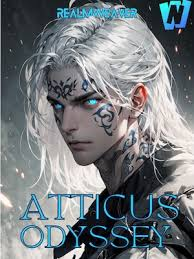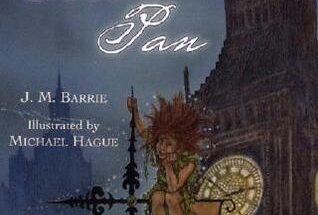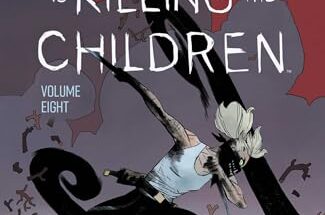Main Characters

Protagonist: Atticus’s Odyssey
- Motivations: Atticus’s Odyssey , the protagonist, is motivated by a desire to understand his new life and make the best of his reincarnated form. His journey is driven by a quest for meaning, exploration, and connection with those around him.
- Character Analysis: Atticus starts as an ordinary individual who unexpectedly finds himself reincarnated into a fantastical playground. Initially bewildered, he quickly adapts to his new reality, demonstrating resilience, curiosity, and a knack for solving problems. Throughout the story, Atticus forms meaningful relationships with other characters, learns the rules of his new world, and discovers hidden strengths and abilities. His development is marked by increasing confidence and a deeper understanding of his purpose.
Antagonist: The Playground’s Master
- Motivations: The antagonist, often the enigmatic master of the playground, seeks to maintain control over the world and its inhabitants. Their motivations can stem from a desire for power, fear of change, or a belief in their own superiority.
- Character Analysis: The Playground’s Master is portrayed as cunning and manipulative, creating obstacles for Atticus and other characters. Their interactions with Atticus highlight their contrasting philosophies and approaches to power. As the story progresses, the Master’s true intentions and backstory are revealed, adding layers to their character and their opposition to Atticus.
Other Key Characters:
- Mentors and Guides: Characters like Sage Elders or Mystical Creatures who provide Atticus with knowledge and support. Their motivations are aligned with guiding Atticus to fulfill his potential.
- Allies and Friends: Fellow reincarnated souls or inhabitants of the playground who form bonds with Atticus. These characters offer companionship, assistance in challenges, and diverse perspectives on the world.
- Rivals: Other powerful beings or competitors within the playground who challenge Atticus, pushing him to grow and refine his abilities.
Plot
Main Conflict:
- The primary conflict revolves around Atticus navigating the trials and mysteries of the playground while contending with the Playground’s Master’s schemes. The story follows Atticus’s efforts to understand the rules of the playground, overcome challenges, and uncover the truth behind his reincarnation.
- Development: As Atticus delves deeper into the playground’s mysteries, he faces increasingly complex trials that test his wit, strength, and resolve. The conflict intensifies as he uncovers the Playground’s Master’s true plans and the deeper purpose of the playground.
- Resolution: The story culminates in a climactic confrontation between Atticus and the Playground’s Master. Through determination, cleverness, and the support of his allies, Atticus overcomes the final challenges and brings about a resolution that reshapes the playground and its inhabitants’ futures.
Setting
Time and Place:
- The story is set in a magical and surreal playground that exists beyond conventional time and space. This fantastical setting includes various mystical landscapes, enchanted structures, and mysterious realms that Atticus must explore.
- Influence: The setting plays a pivotal role in shaping the characters’ experiences and the story’s events. The whimsical and unpredictable nature of the playground provides both opportunities and obstacles for Atticus, reflecting his internal journey and the story’s broader themes.
Themes
Underlying Ideas:
- Transformation and Rebirth: The novel explores themes of transformation and rebirth, as Atticus navigates his new life and discovers his true potential.
- Courage and Resilience: Atticus’s journey emphasizes the importance of courage and resilience in the face of uncertainty and adversity.
- Power and Responsibility: The story examines the balance between seeking power and using it responsibly, as seen through Atticus’s and the Playground’s Master’s actions.
Author’s Narrative Style
Writing Style and Tone:
- The author employs a vivid and imaginative writing style, bringing the fantastical playground and its inhabitants to life. The tone ranges from whimsical and lighthearted during moments of exploration to intense and suspenseful during conflicts and trials.
Author’s Point of View
Perspective:
- The novel is typically written in the third person, providing a comprehensive view of Atticus’s journey and the world around him. This perspective allows the reader to experience Atticus’s internal thoughts and external challenges in vivid detail.
Personal Reflection
Impact and Relevance:
- The novel’s exploration of transformation, courage, and resilience resonates with readers who appreciate stories of personal growth and self-discovery. Its relevance to current events or trends can be seen in its emphasis on adaptability and the pursuit of one’s potential in the face of unexpected challenges.
Conclusion
Summary:
- “Atticus’s Odyssey: Reincarnated into a Playground” is a captivating tale of transformation, courage, and self-discovery. Through richly developed characters, a compelling plot, and a vividly detailed setting, the novel explores profound themes of rebirth, resilience, and the quest for power. The author’s narrative style and point of view enhance the reader’s immersion into this magical world, making it a truly impactful read.
click here to the read the full novel


